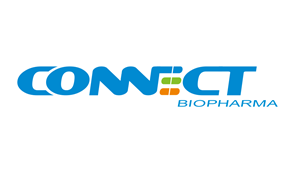Article
Connect Biopharma Seeks Indications for CBP-201 for Asthma, Atopic Dermatitis
Author(s):
Trials of CBP-201 for asthma and chronic rhinosinusitis with nasal polyps are ongoing, and early data from the atopic dermatitis trial were promising.

Connect Biopharma detailed a new human monoclonal antibody CBP-201 which inhibits interleukin (IL)-4Ra and blocks inflammatory signaling by both IL-4 and IL-13.
The company announced its intention to seek indications for CBP-201 in 3 distinct areas of study including atopic dermatitis, type 2 inflammatory asthma, and chronic rhinosinusitis with nasal polyps.
Mechanism of Action
The primary function of CBP-201 is to block IL-4Ra, a subunit for IL-4R and IL-13 receptors. These capabilities could be observed in FDA-approved therapies such as dupilumab (Dupixent).
Pre-clinical and clinical data on the medication suggested that the dual inhibition of the IL-4 and IL-13 receptors would be required to achieve the desired efficacy in Th2-mediated conditions such as atopic dermatitis, asthma, and nasal polyps.
In binding to IL-4RA, CPB-201 prevents the receptor from interacting with other receptor subunits required for activation of the signaling pathways responsible for Th2-mediated diseases.
Early Data on Atopic Dermatitis
A recent phase 1b clinical study of the efficacy of CBP-201 in adult patients with moderate-to-severe atopic dermatitis, which was presented at the 29th European Academy of Dermatology and Venereology Congress (EADV) of 2020, observed that multiple doses of CBP-201 were well tolerated.
A total of 31 patients with moderate-to-severe atopic dermatitis were enrolled, all of whom were between 20 and 65 years of age. Patients were randomized into 3 separate cohorts at a 4:1 ratio to receive CBP-201 (75, 150, and 300mg subcutaneously) or matching placebo, once a week (QW) for 4 doses.
By week 4 of the study, 88% and 100% of patients receiving CBP-201 150 mg (n=8) or 300 mg (n=7), respectively, achieved a 50% reduction in the Eczema Area and Severity Index (EASI) score.
Additionally, 50.0% and 42.9% and of patients receiving CBP-201 150 mg or 300 mg, respectively, achieved clear/almost clear skin (Investigator Global Assessment 0,1).
Skin lesion improvements were deemed rapid by investigators of the study and observed as early as week 1 of the study. These improvements were linked with rapid reduction in pruritus intensity and frequency that continued on through week 4 of the study.
According to the overview offered by Connect Biopharma, a phase 2b dose ranging study will be conducted to assess the efficacy, safety, pharmacokinetics, and pharmacodynamics of CBP-201 in patients with moderate-to-severe atopic dermatitis. The study will also evaluate the possibility of dosing every 4 weeks.
Trials for CBP-201 and moderate-to-severe persistent asthma with type 2 inflammation and chronic rhinosinusitis with nasal polyps are still ongoing.





